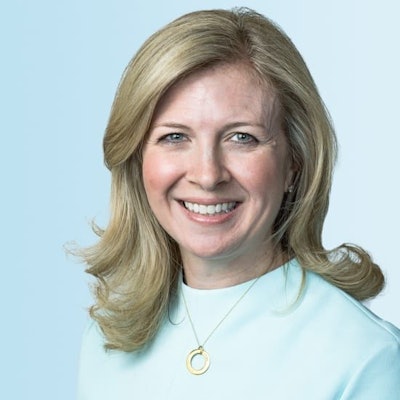A new study by EAB highlights a trend among students who feel unsure about their commitment to college due to growing concerns about affordability, academic success, and mental health preparedness. These students started their high school career during the COVID-19 pandemic and are currently making the transition into adulthood.
The data offers new insight on the contributing factors for the spike decline in enrollment at community college and universities across the country.
About 20,000 high school students were surveyed. These students, referred to as “Gen P,” a term coined by EAB to describe the generation of students whose college-going behaviors have been influenced by the pandemic, expressed real concerns about attending college.  Hope Krutz
Hope Krutz
“A key part to this report is not just the impact on the next one or two classes,” said Hope Krutz, president of Enroll360, an EAB initiative that delivers consulting and marketing services to institutions across the country. “But really how is the pandemic reshaping how the college search experience and process happens for students and what students are looking to gain out of college?”
According to the survey, more than one in five students (22%) have decided to opt out of college because they are not mentally ready. This is a sharp increase from pre-pandemic levels that showed 14% of students feeling this way in EAB’s 2019 survey. The survey took into account the academic, mental, social, and financial issues that are concerning students as they decide what to do with their future and why many are opting out of attending college.
First generation and lower-income students were hit particularly hard. About 28% of first-generation students expressed concern over not feeling mentally prepared for college versus 20% of non-first-generation students. These students are already faced with many disadvantages. According to The Brookings Institution, a nonprofit public policy organization, first generation college students tend to come from lower-income families and complete school at a lower rate than their peers.
The pandemic has disrupted academic and social learning in various ways. Even students who spent the least amount of time learning remotely, just a month or less, missed the equivalent of seven to 10 weeks of academic learning according to the Center for Education Policy Research at Harvard University. About 26% of students surveyed by EAB selected succeeding in college as a top concern behind only to affordability and value.
Dr. Douglas N. Harris, a senior fellow in the Brown Center on Education Policy at Brookings and founding director of the Education Research Alliance for New Orleans at Tulane University, has also noted in his research how the pandemic has negatively affected academic confidence.
“There's no question, but they're not as well-prepared as they used to be before COVID,” said Harris. “They learned less and got into some bad habits and haven't rebounded, not fully from all of that. I think the survey evidence lines up with the data that we see out of their test scores and other academic outcomes.”
EAB notes that diminished access to in-person instruction during the pandemic created gaps in academic achievement and decreased opportunities for social development. The results show an effect on the mental health, socio-emotional development and academic preparation of students. This may contribute to the lack of confidence students feel about succeeding in college or finding a community on campus.
“I think it is worrisome, and it's not just the academic side of it,” said Harris. “It's the mental health science, which is also part of the survey that they're suffering… But if you're suffering from mental health issues, it's harder to start something new.”
The survey also notes that cost plays a major contributing factor to the decline in enrollment. The cost of college has increased over 169% since the 1980s and certain institutions have dramatically raised costs by over 8% throughout the pandemic. According to experts, this increase has contributed to the sharp decline in enrollment. EAB’s survey shows that 20% of students who indicate that they will not enroll in college after high school state their primary reason is that they believe college is not worth the cost. This is a sharp difference to 2019 when only 8% of students surveyed expressed this sentiment.
Krutz said that colleges and universities have to do a better job developing recruitment tactics developed for this demographic.
“There are a number of ways that schools have approached either the first-year experience, the way they work through orientation, how they think about first year support groups [and] how they think about mental health resources,” said Krutz. “I think the biggest piece of the puzzle is just making all of that a very normal part of the college experience, not an extra part of the college experience you have to go seek out.”
Along with the report, EAB offers recommendations for universities and colleges on how to better recruit and address the concerns that families are facing when deciding on attending college. The recommendations include messaging that addresses families’ worries about academic and mental health support availability to students, as well as highlighting career services and opportunities for internships and job placement and building strong relationships with community-based organizations to better connect and cater to underserved students.
“This isn't one size fits all. So we're talking about a generation,” said Kutz. “They can’t be summed up in a single sentence. They are a sum of individuals and a sum of interests.”
Veronica Fernandez-Alvarado can be reached at [email protected]
















